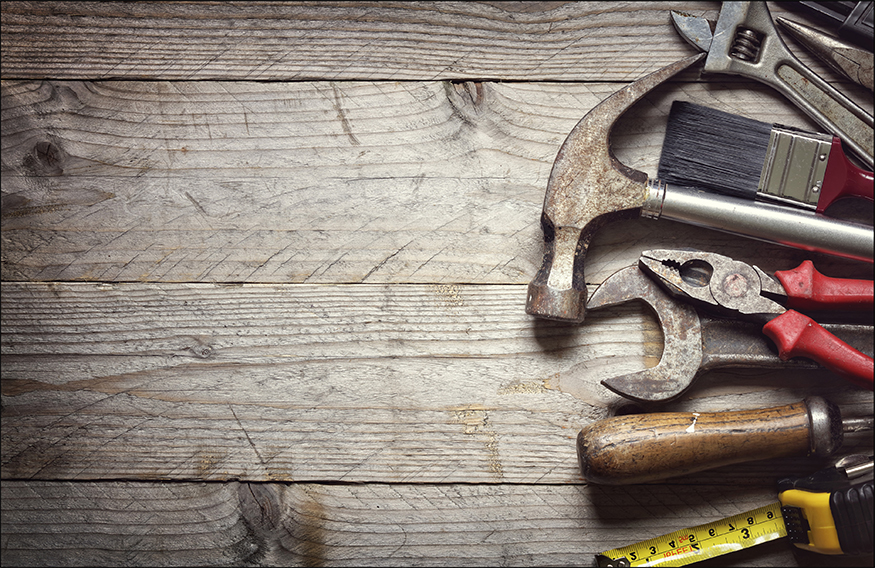
Choosing a contractor to work on your home can be overwhelming. There are many to choose from and it’s hard to know where to start. In your quest to find the right person for the job, it’s important to keep in mind the many aspects that are involved with a minor or major home renovation, such as liability, payments, and scheduling. Asking some questions before hiring
a contractor provides the best foundation for a successful home renovation project. This applies to all contractors—from the painter freshening your clapboard to the carpenter adding an eave. Not only will you get a better sense of how they work, but the answers can help determine what your contractor is responsible for and what you, as the homeowner, might expect.

Here are 15 questions you can ask to improve your odds of satisfaction and reduce the risk of expensive, time-consuming complications.
1. How long have you been in business?
While a start-up contractor might enthusiastically offer what seems like a good deal, there’s an obvious advantage to hiring a company with experienced workers. A contractor should have been in business long enough to have acquired a few references.
3. Are your workers covered by workers’ comp?
If a contractor’s worker sustains an injury while working on your home, will you be liable? Are the people who work on your home covered by workers’ comp? Regulations on providing compensation vary from state to state and some states don’t require it.
5. Can I see some examples of your work?
Having numbers to call for references is helpful but, ideally, you should see some work your contractor has done. The person you call for a reference may be satisfied despite a few loose roof shingles or a landscaping job that you think is haphazard. Seeing is believing.
2. Are you licensed?
Licensing requirements exist to protect the homeowner from inexperienced, unqualified contractors, but requirements do vary from state to state. You can check your state’s licensing board to see what’s expected of your contractor.
4. Will you need to get a permit?
If so, will you set it up and get an inspector? Although the need for a permit varies from job to job and location to location, many contracting jobs do require one. Not getting a permit can result in costly and timely project delays. Be sure your contractor has obtained any necessary permits before work begins.
6. What will you do to keep the job site clean and safe?
A roofer might, for example, provide netting to prevent loose shingles from falling into your landscaping. Jobs that create dust should have a system to prevent that dust from getting into the rest of your living space. Also, what will the cleanup after the job include?

7. How will the job be billed?
Some contractors prefer to be paid by the hour and bill separately for materials, while others bill for the entire project. While it’s helpful to see how job costs break down, billing by the hour can add up in ways you may not expect. If the project is billed as a one-time total fee, ask the contractor to spell out exactly what that fee will cover.
9. Are you insured for any damage to my home?
Most contracting jobs go well but occasionally efforts to improve a home can result in damage. Ask if the contractor carries liability insurance.
11. How long will the job take?
What hours will the workers be on the job? Will my access to the house/apartment be affected? Unexpected delays can happen in every job, but it’s important to start with a realistic estimate of how long the job should take. When checking the contractor’s references, remember to ask if the work they did was finished on time.
12. What’s the payment schedule?
Do not give your contractor any money until you sign a contract that includes a payment schedule. Paying some money down before the job starts is standard but it’s never a good idea to pay the whole amount up front. Payments can be scheduled according to progress on the job. However, if customized items are ordered you may be asked to pay for those as needed.
14. Is there a warranty?
What does it cover? How long is the warranty good for?
ASKING A FEW QUESTIONS BEFORE THE JOB STARTS CAN MAKE THE ENTIRE PROJECT PROCEED MORE SMOOTHLY AND ELICIT DESIRABLE RESULTS.
8. How will you deal with additional costs?
Jobs sometimes require additional materials. How will this be handled?
10. Do you have references?
It’s important to always ask for references and to follow up.

13. What are my payment options?
Most larger businesses will take credit cards and some offer financing. If you do decide to finance your project, shop around. Make sure the rates offered by your contractor’s financial partner are competitive.
15. What products will you use?
You may have specific requirements for some projects and it’s smart to discuss your wishes with the contractor before beginning the job. For example, if you hire a painter and prefer low or zero VOC paint, which has less volatile organic compounds, say so. Or if you prefer that your contractor use only recycled materials, ask if that’s possible and how it will factor into the cost.

